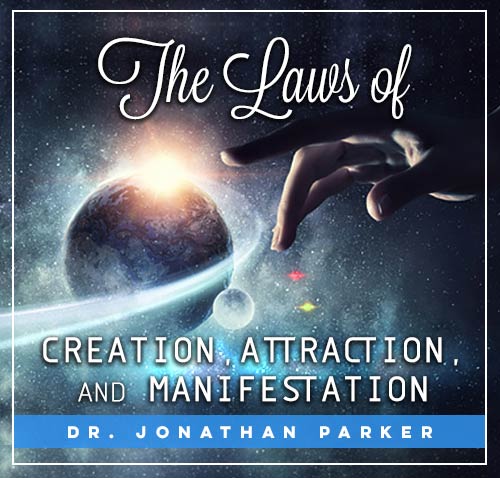Transforming Your Money Relationship: Practical Steps

Before diving in, please note: This post is for informational purposes only. If you’d like to know more about how we approach topics, feel free to check out our friendly Disclaimer Page.
Hey there, amazing readers! 🖐️ Just a quick note: yes, we know there are a lot of ads here. Trust us, we get it—it’s not the prettiest look, but they help us keep this blog alive and kicking. Those pesky little ads cover the costs of all the behind-the-scenes magic, from hosting and tech stuff to creating content we hope you’ll love.
We’re committed to delivering quality posts, and your support (even just sticking around despite the ads) means everything to us. So, bear with us, and thanks for helping us keep the good vibes rolling. Now, on to the fun stuff! 😉
TRANSLATE BUTTON AT THE END OF THE ARTICLE
A Quick Overview
Transforming your money relationship involves more than just managing your finances.
It requires a shift in mindset, beliefs, and behaviors surrounding money.
By understanding your money mindset, identifying limiting beliefs, creating financial goals, developing a budget, tracking expenses, building an emergency fund, paying off debt, investing for the future, seeking professional help, practicing gratitude, setting boundaries, and reflecting on your progress, you can improve your relationship with money and achieve financial stability.
Understanding Your Money Mindset
Your money mindset refers to your beliefs, attitudes, and thoughts about money.
It influences your financial decisions and behaviors.
To understand your money mindset, reflect on how you were raised to think about money, your experiences with money, and your current beliefs about wealth and success.
Are you a spender or a saver?
Do you believe money is scarce or abundant?
Identifying your money mindset is the first step in transforming your relationship with money.
Identifying Limiting Beliefs
Limiting beliefs are negative thoughts and beliefs that hold you back from achieving financial success.
Common limiting beliefs about money include "money is the root of all evil," "I’ll never be wealthy," or "I don’t deserve to be financially secure." By identifying and challenging these beliefs, you can replace them with more empowering beliefs that support your financial goals.
This process can help you overcome obstacles and create a more positive money mindset.
Creating Financial Goals
Setting clear financial goals is essential for transforming your money relationship.
Identify short-term and long-term goals that align with your values and priorities.
Whether your goal is to pay off debt, save for a home, or retire early, having a clear roadmap will help you stay focused and motivated.
Make your goals specific, measurable, achievable, relevant, and time-bound (SMART) to increase your chances of success.
Developing a Budget
A budget is a crucial tool for managing your finances and achieving your financial goals.
Start by tracking your income and expenses to understand where your money is going.
Then, create a budget that allocates your income towards essentials, savings, and discretionary spending.
Make adjustments as needed to ensure you’re living within your means and working towards your financial goals.
Tracking Expenses
Tracking your expenses is key to understanding your spending habits and making informed financial decisions.
Use a budgeting app or spreadsheet to monitor your spending on a regular basis.
Identify areas where you can cut back or reallocate funds towards your financial goals.
By staying aware of your expenses, you can make strategic choices that align with your values and priorities.
Building an Emergency Fund
An emergency fund is a financial safety net that can protect you from unexpected expenses or income disruptions.
Aim to save three to six months’ worth of living expenses in a high-yield savings account.
Start small by setting aside a portion of your income each month until you reach your goal.
Having an emergency fund can provide peace of mind and financial security during challenging times.
Paying Off Debt
Debt can be a major obstacle to financial freedom and stability.
Create a plan to pay off your debts, starting with high-interest debts first.
Consider using the debt snowball or debt avalanche method to prioritize and tackle your debts systematically.
Make extra payments whenever possible and avoid taking on new debt.
By reducing your debt burden, you can free up more money for savings and investments.
Investing for the Future
Investing is a powerful way to build wealth and secure your financial future.
Start by educating yourself about different investment options, such as stocks, bonds, mutual funds, and real estate.
Consider working with a financial advisor to create an investment strategy that aligns with your goals and risk tolerance.
Begin investing early and consistently to take advantage of compound interest and grow your wealth over time.
Seeking Professional Help
If you’re feeling overwhelmed or unsure about your financial situation, consider seeking professional help from a financial advisor or planner.
A financial professional can provide personalized guidance, expertise, and support to help you achieve your financial goals.
They can help you create a financial plan, optimize your investments, and navigate complex financial decisions.
Working with a professional can give you peace of mind and confidence in your financial future.
Practicing Gratitude
Practicing gratitude can help shift your mindset from scarcity to abundance and improve your relationship with money.
Take time each day to reflect on what you’re grateful for, whether it’s your health, relationships, or opportunities.
Appreciating what you have can help you feel more content and reduce the urge to overspend or compare yourself to others.
Gratitude can also inspire generosity and a sense of abundance, leading to a more positive money mindset.
Setting Boundaries
Setting boundaries around your finances is essential for maintaining healthy money habits and relationships.
Clearly communicate your financial boundaries with family, friends, and yourself.
This could include saying no to unnecessary expenses, setting limits on gift-giving, or establishing boundaries with financial dependents.
By setting and enforcing boundaries, you can protect your financial well-being and prioritize your own financial goals.
Reflecting and Reevaluating
Regularly reflect on your financial progress and reevaluate your goals, budget, and habits.
Celebrate your wins, learn from your mistakes, and adjust your plans as needed.
Take time to review your financial goals and assess whether they’re still relevant and achievable.
By reflecting and reevaluating on a consistent basis, you can stay on track towards financial success and continue to improve your money relationship.
Conclusion
Transforming your money relationship requires a holistic approach that addresses your mindset, beliefs, behaviors, and financial habits.
By understanding your money mindset, identifying limiting beliefs, creating financial goals, developing a budget, tracking expenses, building an emergency fund, paying off debt, investing for the future, seeking professional help, practicing gratitude, setting boundaries, and reflecting on your progress, you can take control of your finances and achieve greater financial stability and well-being.
Remember that transforming your money relationship is a journey that requires patience, dedication, and self-awareness, but the rewards of financial freedom and peace of mind are well worth the effort.

The Enlightenment Journey is a remarkable collection of writings authored by a distinguished group of experts in the fields of spirituality, new age, and esoteric knowledge.
This anthology features a diverse assembly of well-experienced authors who bring their profound insights and credible perspectives to the forefront.
Each contributor possesses a wealth of knowledge and wisdom, making them authorities in their respective domains.
Together, they offer readers a transformative journey into the realms of spiritual growth, self-discovery, and esoteric enlightenment.
The Enlightenment Journey is a testament to the collective expertise of these luminaries, providing readers with a rich tapestry of ideas and information to illuminate their spiritual path.
Our Diverse Expertise 🌟
While our primary focus is on spirituality and esotericism, we are equally passionate about exploring a wide range of other topics and niches 🌍📚. Our experienced team is dedicated to delivering high-quality, informative content across various subjects ✨.
To ensure we provide the most accurate and valuable insights, we collaborate with trusted experts in their respective domains 🧑🏫👩🏫. This allows us to offer well-rounded perspectives and knowledge to our readers.
Our blog originally focused on spirituality and metaphysics, but we’ve since expanded to cover a wide range of niches. Don’t worry—we continue to publish a lot of articles on spirituality! Frequently visit our blog to explore our diverse content and stay tuned for more insightful reads.






